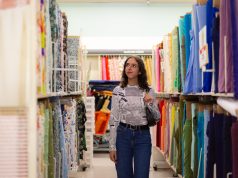On September 7, 2021 El Salvador adopted Bitcoin as legal tender. But some experts believe that, although the adoption of Bitcoin is not a bad idea, cryptocurrencies will suffer in the region if the experiment fails.
“If the Chivo Wallet becomes a failure, it will create bad publicity for cryptocurrencies and will eliminate it as an option for savings or investing,” says Christopher Linge, professor of economics at the Francisco Marroquín University in Guatemala City.
According to Linge, the Chivo Wallet used to circulate money could be a “red flag” due to the lack of information from the groups that run this source.
Para leer la version en español, haga clic acá
In 2009, Bitcoin was first introduced to the world with an initial value of zero dollars. In 2021, one Bitcoin coin has surpassed $60,000.
Even so, its value is inconsistent. Bitcoin is a decentralized digital currency, which means it works without a central bank or an individual administrator.
“Cryptocurrencies and non-fungible currencies, and all these digital assets, in many ways, are an accidental result of the excess liquidity created by the policies of the Salvadoran Central Bank,” Linge said.
El Salvador is an “experimental terrain,” where the results seen within the country could influence other neighboring Latin American countries’ use of Bitcoin.
Esteban de la Peña Padilla, one of the founders of IBEX Mercado, a Guatemalan company focused on cryptocurrency use, is very enthusiastic and optimistic about its use and investment.
“Guatemala is a country with a very low educational level and poverty,” he says. “I see Bitcoin as a source that could help people save and grow their own money as a way to increase their initial profits.”
The entrepreneur says that Guatemala needs its own cryptocurrency initiative to gain a foothold in the market.

































